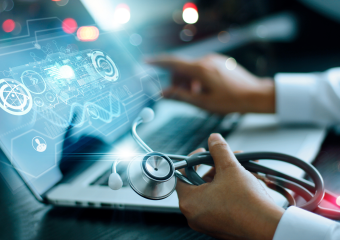AI Health Reports: Must-Know Facts for Effortless Understanding
The Rise of AI-Generated Health Reports: What Patients Should Know
AI-generated health reports are increasingly becoming a staple in modern healthcare practices, leveraging technology to analyze vast amounts of data more efficiently than traditional methods. As this technology continues to develop, it is essential for patients to understand what AI-generated health reports are, how they can be used, and the implications they carry for personal healthcare.
Understanding AI-Generated Health Reports
AI-generated health reports are created using algorithms that analyze medical data and provide insights about a patient’s health. These reports might include predictions about disease risks, summaries of current health conditions, or suggestions for lifestyle adjustments. The process begins with data collection, ranging from medical histories and genetic information to data from wearable health devices.
Machine learning models are trained on this large dataset to identify patterns and correlations that might not be immediately obvious to human observers. This capacity to handle vast and complex data sets is one of the key reasons AI has become so useful in health predictions and diagnostics.
How Accurate Are AI-Generated Health Reports?
The accuracy of AI-generated health reports can vary based on the algorithms used, the quality of data inputted, and the specific health variables being analyzed. Generally, AI has shown high levels of accuracy in areas like imaging diagnostics, where it is used to detect conditions such as cancers or heart diseases more quickly and accurately than some traditional methods.
However, patients should be aware that while AI can remarkably enhance accuracy, it is not infallible. Misdiagnoses can occur, and AI’s reliability largely depends on the underlying data and algorithms. The quality of data is paramount; poor quality or biased data can lead to incorrect conclusions.
Benefits of AI-Generated Health Reports
One of the primary advantages of AI-generated health reports is their ability to efficiently process and analyze large sets of data beyond human capability. This can lead to quicker diagnostics, personalized treatment plans, and better patient outcomes. AI can also identify at-risk patients earlier than conventional methods, allowing for preventive measures that can reduce the prevalence severity of diseases.
Moreover, these AI systems can uncover subtle health trends and risk factors previously unnoticed by human analysts, providing new insights into patient health and potentially contributing to more effective medical practices.
Potential Risks and Ethical Considerations
While the benefits are significant, there are also risks and ethical considerations that come with the use of AI in healthcare. One major concern is data privacy. Sensitive personal health information used to train AI systems can be susceptible to breaches, potentially leading to privacy violations.
Additionally, there is the issue of bias. If AI systems are trained on data that is not diverse, the generated reports might not be applicable to different populations, which can perpetuate healthcare disparities. Ensuring that AI systems are ethical and fair means continuously monitoring and updating the data they are trained on and the algorithms they use.
What Patients Should Keep in Mind
For patients navigating their health care with the help of AI-generated health reports, it is crucial to maintain an open line of communication with healthcare providers. Patients should understand these reports are typically one piece of the diagnostic puzzle. It is important to discuss your AI-generated health report with a physician who can interpret the nuances of the data in the context of your overall health.
Secondly, patients should advocate for transparency about how their data is used and secured. Understanding the source of the data that trained the AI and the measures in place to protect privacy can help in making informed decisions about participating in AI-driven healthcare programs.
Conclusion
AI in healthcare presents a promising frontier that combines technology and medicine to improve patient outcomes. However, as AI-generated health reports become more common, patients should remain informed about how these tools work, the benefits they offer, and the risks they entail. By staying informed and engaged, patients can better utilize AI resources to support their health while safeguarding their personal data and rights.








